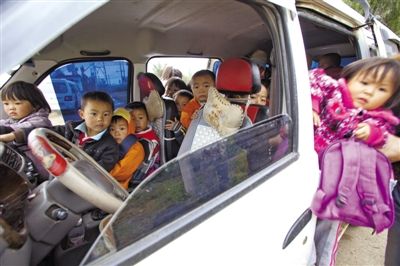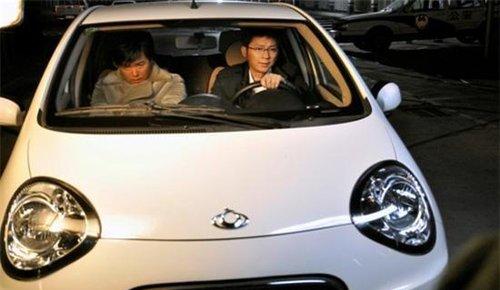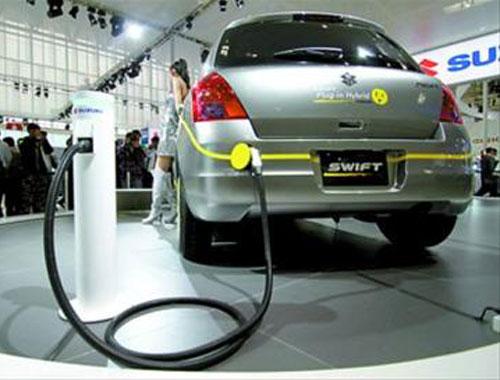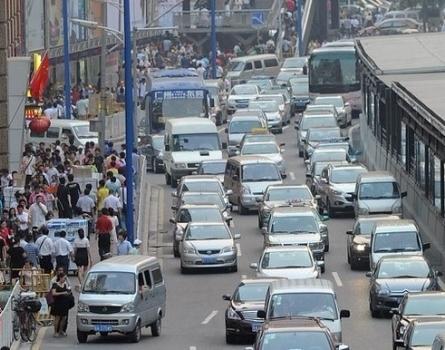Analysis: Problems remaining in the Chinese automotive market in 2012
Gasgoo.com (Shanghai) - Despite several advancements made in 2012, there were still a lot of problems remaining in the Chinese automotive market last year. The poor progress of the new energy vehicle industry, declining market share of own brand manufacturers, increasing traffic congestion and rising pollution rates are all issues that the country has had to deal with over the past year. In the run-up to the new year, auto.sohu.com.cn invited reporters to comment on the state of market in 2012. The website then summarized their comments into seven key points, which are presented below.

Point 1: School bus safety standards still not properly enforced
The lack of strict safety standards for school buses has led to far too many tragedies over the year. Most recently, on Christmas Eve, a minibus working as a school bus in Jiangxi province plunged into a body of water, killing 11 children. Although a new set of standards was released in early 2012, their implementation has been far from ideal.
Why are school bus accidents still so prevalent in China? The panel of experts arrived at the conclusion that school bus safety is still not given the same amount of attention in China as it is in other countries. In their opinion, the issue requires joint coordination between the Ministry of Education, Ministry of Transportation, Ministry of Public Security and other departments to resolve. The experts point to the US as an example that China strive to follow. The country's goal should be to ensure the safety of each and every one of its children.

Point 2: Poor performance among Chinese own brand manufacturers
Domestic Chinese manufacturers' combined performance was another matter of concern last year. Despite a rebound in autumn, which was due mainly to Japanese manufacturers' declining performance, several own brands' cumulative sales over the whole year were worse than in 2011.
Furthermore, although Chinese automobile manufacturers were able to capitalize on the losses Japanese enterprises suffered in the latter half of the year, Cheng Xiaodong, analyst for the National Development and Reform Commission's Price Monitoring Center, points out that their sales increases paled in comparison to those of German, Korean and American manufacturers. Being the world's largest automobile market, it is a shame that China still lacks a leading multinational automobile enterprise of its own.

Point 3: Future for new energy vehicles still unclear
In the eyes of Jia Xinguang, commentator for auto.sohu.com.cn, the lowest point of this year was the failure of the 'ten cities thousand automobiles' policy. Unsuccessful implementation of the policy, which offered subsidies for selected vehicles, means that 2012 is yet another mediocre year for China's new energy vehicle industry.
Mr. Jia offers the following three suggestions to promote development of the new energy vehicles in the country: acknowledging that pure electric vehicles can't fully replace traditional fuel powered vehicles in the near future; abandoning unrealistic policies for the popularization of EVs; further developing infrastructure for EVs and other new energy vehicles.
Given the large scope of the automobile market in China, there is still a great deal of room for new electric vehicles to develop in the country. Hopefully 2013 will see new energy vehicle sales reach a new high in China.

Point 4: Lack of reliable, publicly available production and sales statistics for the automotive industry
Inconsistent production and sales data has been a consistent problem when analyzing the Chinese automobile industry. Organizations use very different methods to calculate the data, with their individual results varying noticeably. Lack of official recognition for any one organization's methodology compounds the problem even further.
As Zhu Weihua, an analyst with auto.sohu.com.cn, said in his evaluation on the issue, clear and unified statistics are essential for manufacturers, policy makers and the media, especially when analyzing a body as large and complicated as the Chinese automotive industry. Without access to exact and accurate figures, it becomes harder to spot trends in automobile sales and production. Furthermore, Chinese manufacturers are left at a disadvantage to multinational enterprises, which spend a great deal of money to hire specialized firms to supply them with precise figures. With the information age already upon us, it is crucial that accurate industry statistics are made available to the public.

Point 5: Own brand manufacturers' failure to make inroads in the government vehicle market
To have its automobiles bought and used by the government is a major boost to any manufacturer in any country. In addition to the raw sales that government orders bring in, being selected for official use adds a certain degree of prestige and recognition that can help boost sales for an automobile model. The fact that domestic own brand manufacturers have still to see their vehicles used by the government in any significant capacity is yet another disadvantage they have in comparison to rivaling foreign companies.
There were originally reports circulating throughout the media that FAW Hongqi sedans would be used for the Chinese Communist Party's 18th National Congress, which was held this past November. However, in the end the news was confirmed to be unfounded, signifying that own brand manufacturers had lost yet another crucial marketing opportunity. According to Economic Observer News reporter Yang Xiaolin, government departments need to work harder to increase the amount of domestic Chinese brand vehicles in official service. The recent decision by the provincial government of Gansu to gradually convert its official car fleet to Chinese brands has been a major step in the right direction.

Point 6: The negative effect of policies limiting new automobile registrations on the market
Due to increasing traffic and environmental problems, several major Chinese cities have begun implementing policies to restrict the number of new automobile registrations.
According to Zhai Qin, analyst for auto.sohu.com.cn, the policies have not managed to solve any of the traffic and environmental issues that the cities are dealing with. Despite the lack of real results, first- and second-tier cities have begun considering whether or not to mimic policies set in place in Shanghai, Beijing, Guangzhou and other major cities. Whether or not municipal governments will start taking other measures to deal with these unresolved problems this year remains to be seen.

Point 7: Lack of return policies protecting consumers
The lack of comprehensive policies protecting consumers from defective or subpar products in China is especially evident in the automotive market, where it has become a hot topic of debate.
Yu Mo, an auto.sohu.com.cn analyst, believes that the lack of clear plans for the introduction of enforceable legal policies administering the repair, replacement and return of automobiles in China is one of the industry's most regrettable shortcomings this year. In Mr. Yu's words, these policies would offer the sort of safeguards consumers need by forcing automobile manufacturers to stand behind the quality of their products. However, following the introduction of stricter legislation for vehicle recalls, almost no attention was paid to policies protecting buyers of automobiles. Hopefully this topic is given more attention this year.
Gasgoo not only offers timely news and profound insight about China auto industry, but also help with business connection and expansion for suppliers and purchasers via multiple channels and methods. Buyer service:buyer-support@gasgoo.comSeller Service:seller-support@gasgoo.com







